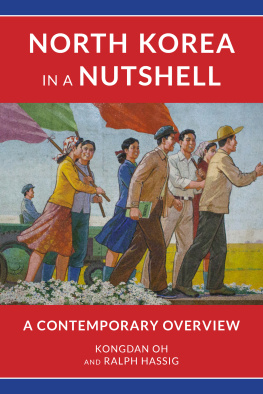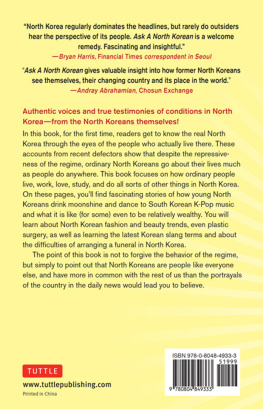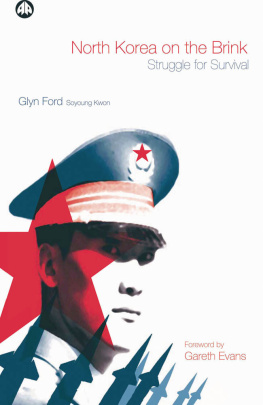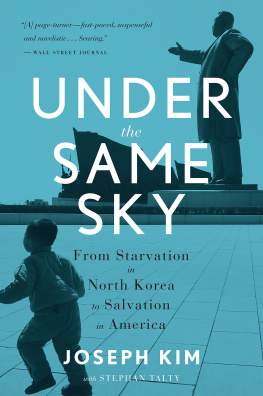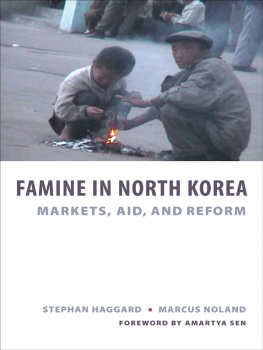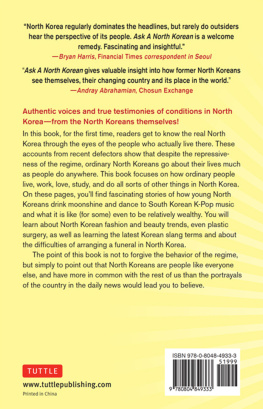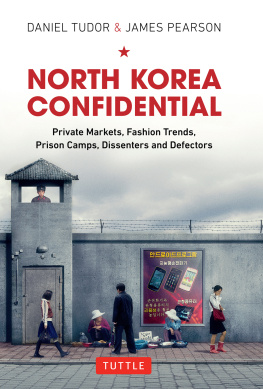MARCHINGThroughSUFFERING
CONTEMPORARY ASIA IN THE WORLD
CONTEMPORARY ASIA IN THE WORLD
David C. Kang and Victor D. Cha, Editors
This series aims to address a gap in the public policy and scholarly discussion of Asia. It seeks to promote books and studies that are on the cutting edge of their respective disciplines or in the promotion of multidisciplinary or interdisciplinary research but that are also accessible to a wider readership. The editors seek to showcase the best scholarly and public policy arguments on Asia from any field, including politics, history, economics, and cultural studies.
Beyond the Final Score: The Politics of Sport in Asia, Victor D. Cha, 2008
The Power of the Internet in China: Citizen Activism Online, Guobin Yang, 2009
China and India: Prospects for Peace, Jonathan Holslag, 2010
India, Pakistan, and the Bomb: Debating Nuclear Stability in South Asia, umit Ganguly and S. Paul Kapur, 2010
Living with the Dragon: How the American Public Views the Rise of China, Benjamin I. Page and Tao Xie, 2010
East Asia Before the West: Five Centuries of Trade and Tribute, David C. Kang, 2010
Harmony and War: Confucian Culture and Chinese Power Politics, Yuan-kang Wang, 2011
Strong Society, Smart State: The Rise of Public Opinion in Chinas Japan Policy, James Reilly, 2012
Asias Space Race: National Motivations, Regional Rivalries, and International Risks, James Clay Moltz, 2012
Never Forget National Humiliation: Historical Memory in Chinese Politics and Foreign Relations, Zheng Wang, 2012
Green Innovation in China: Chinas Wind Power Industry and the Global Transition to a Low-Carbon Economy, Joanna I. Lewis, 2013
The Great Kanto Earthquake and the Chimera of National Reconstruction in Japan, J. Charles Schencking, 2013
Security and Profit in Chinas Energy Policy: Hedging Against Risk, ystein Tunsj, 2013
Return of the Dragon: Rising China and Regional Security, Denny Roy, 2013
Contemporary Japanese Politics: Institutional Changes and Power Shifts, Tomohito Shinoda, 2013
Contentious Activism and Inter-Korean Relations, Danielle L. Chubb, 2014
SANDRA FAHY
MARCHINGThroughSUFFERING
LOSS AND SURVIVAL IN NORTH KOREA

COLUMBIA UNIVERSITY PRESS
NEW YORK
This book was published with the assistance of Sophia University Support Program for Academic Book Publication.
COLUMBIA UNIVERSITY PRESS
Publishers Since 1893
New York Chichester, West Sussex
cup.columbia.edu
Copyright 2015 Columbia University Press
All rights reserved
Library of Congress Cataloging-in-Publication Data
Fahy, Sandra.
Marching through suffering : loss and survival in North Korea / Sandra Fahy.
pages cm. (Contemporary Asia in the world)
Includes bibliographical references and index.
ISBN 978-0-231-17134-2 (cloth : alk. paper) ISBN 978-0-231-53894-7 (electronic)
1. RefugeesKorea (North)Biography. 2. RefugeesKorea (North)Attitudes. 3. Victims of famineKorea (North) 4. FaminesKorea (North) 5. Human rightsKorea (North) 6. Korea (North)Social conditions. I. Title.
HV640.5.K67.F35 2015
951.93050922dc23
2014020106
A Columbia University Press E-book.
CUP would be pleased to hear about your reading experience with this e-book at .
Jacket Image: Seung Woo Back, Blow up #042, 2006
Jacket Design: Chang Jae Lee
References to Internet websites (URLs) were accurate at the time of writing. Neither the author nor Columbia University Press is responsible for URLs that may have expired or changed since the manuscript was prepared.
To the North Koreans who shared their stories with me,
to those who may in the future,
and to those who never will.
CONTENTS
Translations of Korean language texts and the transcribed oral accounts are mine except where indicated. The name, age, and hometown of interviewees are altered slightly and pseudonyms used to adhere to requests for confidentiality. Throughout the text the transcriptions of oral accounts are followed by pseudonyms and the age of the speaker at the time of recording. Familiar names and places appear as they are conventionally written in English (for instance, Seoul, Pyongyang, and Kim Jong-Il); otherwise the McCune-Reischauer System of Romanization has been used. North Korea and the Democratic Peoples Republic of Korea (or DPRK) are used throughout, and no political implication is intended with either. Former North Koreans in Seoul and Tokyo variously use the terms Chosun, buk-Chosun, or buk-han to refer to their home countryeach containing a political tone. Those terms are not used except where they appear in the oral accounts. The word defector is used, but I prefer North Korean or former North Korean to avoid overt dissident associations, particularly strong in the Korean word talpukcha (one who escaped the North). In contemporary South Korean scholarship and government documents the term saeteomin, meaning new settler, is increasingly used. I tend to avoid the anthropological word informant because in relation to North Korea this word takes on an unfortunate hue; in such cases I opt for the more neutral interviewee.
Many people contributed to the creation of this book. I thank the North Koreans who worked with me in Seoul and Tokyo. Without their generosity and strength of spirit, this work would not exist. Thank you for sharing your homes, offices, and inner worlds with me. Two academic institutions gave this book a home. I am indebted to the Korean Studies Institute (KSI) at the University of Southern California (USC)in particular, David C. Kang for his excellent guidance to young scholarsfor granting me a postdoctoral fellowship during which I wrote this book. The generous support of the Sejong Society provided additional time to focus on revising the writing. Thank you, Peter Y. S. Kim and Chul Lee. I also wish to thank Elaine Kim, Linda Kim, and Timothy Lee for their warm encouragement throughout those years and for making the Ahn House an intellectual home.
My books first reviewers, Stephan Haggard and Suk-Young Kim, identified crucial areas for improvement during the manuscript review, again hosted and supported by the KSI at USC. For their time reading and critiquing the early drafts of the book, I am honored and grateful. Prior to my stay in Los Angeles, Valrie Gelzeau at the Centre de recherches sur la Core (EHESS) in Paris provided much needed encouragement as I began the earliest writing of this book from its roots as a dissertation, supported by the Korea Foundation Post-Doctoral Fellowship. My dissertation research, which formed the earliest beginnings of this book, was supported by the Korea Foundation and supervised by the two best advisors a doctoral student could ask for, Johan Pottier and Keith Howard at the Department of Sociology and Anthropology at The School of Oriental and African Studies. I thank them for believing in the original questions that drove this work.
I am also indebted to my familymy mother and father for always encouraging my education and my sisters for putting up with meand friends who helped with research and personal support: Hyun-soo Kim, Soohyun Kim, Eunyoung Lee; thanks also for the kindness, encouragement, and help of Lucia Melito, Sangbum Kim, and June Lee, and a special thank you to Carol Dussere. Thanks also to Pastor Kim, Elizabeth Batha, the team of North Koreans at the Democracy Network Against the North Korean Gulag in Seoul, and Kato Hiroshi at Life Funds for North Korean Refugees in Tokyo. To my two first Korean teachers, many years ago, Mr. Ham and Mrs. Oh, I am grateful for your endurance!
Next page

